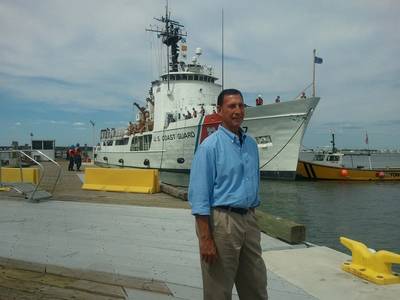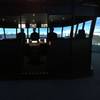LoBiondo Opens Hearing on Maritime Transport Regs
Rep. Frank LoBiondo (R-N.J.) chaired today’s Subcommittee on Coast Guard and Maritime Transportation Hearing on “Maritime Transportation Regulations: Impacts on Safety, Security, Jobs, and the Environment; Part II” in place of Subcommittee Chairman Duncan Hunter.
LoBiondo’s opening statement was prepared as follows:
“The Subcommittee is meeting today for the second part of our two part hearing to review regulations affecting the maritime industry. Today’s hearing will focus on environmental regulations and how such regulations impact the flow of commerce through our ports, and the ability to grow jobs in the maritime sector.
“The Coast Guard and the EPA are writing and enforcing new regulations on vessel owners in an effort to improve water and air quality. While regulations should address ways to enhance environmental stewardship, they must also balance the importance of maintaining the free flow of maritime commerce. I am concerned that some of these regulations fail to achieve that balance. Some of these rulemakings are extremely costly. They are burdensome and duplicative. And they are not being applied and enforced in a fair manner.
“Take for instance regulations governing the discharge of ballast water. Currently, the Coast Guard and the EPA have developed separate regulations under two different federal laws to govern ballast water discharges. Although the agencies have worked together to try to reach uniformity, the programs still differ in vessels covered, geographic reach, enforcement, and penalties for noncompliance. For instance, the Coast Guard rules allow for vessel owners to seek an extension if treatment technologies do not exist or cannot be installed by the deadline. The EPA provides no mechanism for an extension, leaving a vessel owner liable for civil and criminal penalties through no fault of his own.
“The situation only becomes more confusing and burdensome for vessel owners as each individual state adds its own ballast water discharge requirements on top of the EPA’s program. Under the EPA’s current program, 25 states have added their own differing discharge standards. Some states have laws in place forcing vessel owners to treat their ballast water to a standard for which no technology has yet been invented. The situation is ridiculous. It is completely unreasonable to ask vessel operators to comply with two federal standards and as many as 25 different, contradictory, and unachievable state standards. I look forward to working with my colleagues in the House and the Senate on bipartisan legislation to rectify this issue.
“I am also concerned about the implementation of the North America Emissions Control Area. Beginning January 1, 2015, vessels transiting 200 miles from shore will need to burn ultra-low sulfur fuel. While I understand the critical importance of improving the air quality in our coastal regions, I am concerned the EPA and Coast Guard did not properly consider the economic impact this rule will have on smaller vessels that must travel entirely within the EEZ. The costs associated with this new rule could severely undermine efforts to promote the use of short seas shipping as an alternative to moving freight along our congested highways and ultimately do little to improve air quality. I look forward to hearing from our witnesses what steps they plan to take to work with industry on this issue.
“As I have said before, maritime commerce is essential to the U.S. economy. Domestic shipping alone is responsible for over 500,000 American jobs and $100 billion in annual economic output. With the economy still in a fragile state, it is imperative the federal government foster an atmosphere where our maritime industry can compete and expand.”
transportation.house.gov












